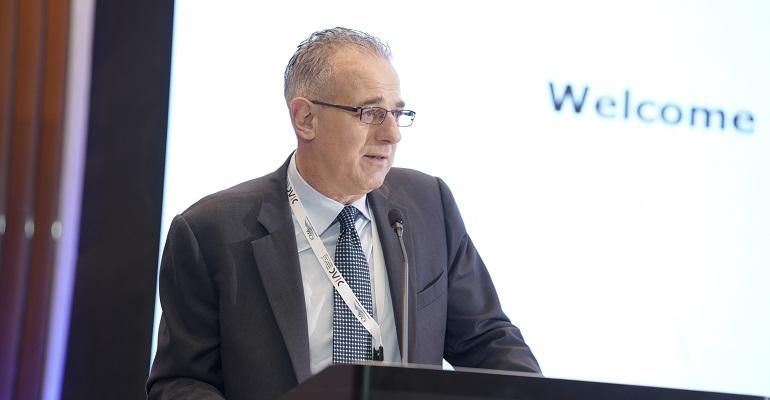The interview underscores the importance of international maritime arbitration embracing technological advancements, highlighting the critical role of well-crafted arbitration clauses for businesses seeking resolution in the UAE.
Event outlook
As the Chairman of the Host Committee for ICMA XII, can you provide us with an overview of the event’s significance in the maritime industry?
The International Congress of Maritime Arbitrators (ICMA) is the prime biannual gathering focused on maritime arbitration. It brings together maritime lawyers, arbitrators and professionals from the maritime industry. The event is specifically designed for those involved in maritime disputes and arbitration cases. Participants also include former lawyers, technical experts, and former judges with expertise in maritime law. While the event primarily focuses on maritime arbitration, there may be some overlap with the commercial arbitration sector as well. Overall, it serves as a platform for networking and knowledge exchange in the maritime business community.
What are your expectations and goals for this year’s edition?
ICMA's goal is to promote maritime arbitration and the biannual conference. The Dubai International Arbitration Centre (DIAC) will become a prominent centre for maritime arbitration in the future. There are people from across the region, a lot of practitioners from the UAE, and international practitioners.
Maritime sector in Dubai
What are the key challenges faced by maritime businesses in terms of arbitration and how can they be addressed effectively?
When drafting contracts in the maritime industry, selecting appropriate arbitration clauses is crucial. Factors such as counterparty location, asset location, business type, and enforceability must be considered. Cost considerations are also important due to financial constraints in the industry. Enforceability plays a significant role in the later stages of disputes, emphasising the need for careful negotiation of arbitration clauses during contract drafting.
Could you highlight some key factors that make Dubai an ideal choice for maritime businesses seeking arbitration services?
Dubai is the hub port for the region. If you add the additionals of the area, I mean Dubai is the hub for port services, aviation services, logistics services, commodities companies and services, and regional offices. If you then add the extra capacity with Sharjah, the bunkering business in Fujairah, the offshore oil and gas that Abu Dhabi has, if you add all that, it's a major international shipping hub.
As Mohammed Al Muallem, the Executive Vice President of DP World, said earlier today that is Dubai's business, that's what builds Dubai. That was His Highness Sheikh Rashid's vision: to turn Dubai into a trading hub and to a great extent that's what he and his sons, His Highness Sheikh Mohammed and previously His Highness Sheikh Maktoum have succeeded in doing.
Looking ahead, what do you see as the future of international maritime arbitration, and how do you envision the role of Dubai in shaping this future?
Dubai aims to become more involved in maritime arbitration and attract more of that business to the region. While commercial arbitration has spread out to various centres, maritime arbitration has primarily remained in London, with some business in Singapore and Hong Kong.;
Dubai's goal is not to take business away from London but to establish itself as a viable option for maritime arbitration. The Dubai International Arbitration Centre (DIAC) and previously Emirates Maritime Arbitration Centre (EMAC) have explored ways to increase their involvement in the maritime business.
Future trends and arbitration approaches
How do you see the future of international maritime arbitration evolving, and what trends do you foresee in the coming years?
Arbitration is rapidly evolving with online procedures and reduced physical hearings to lower costs. This shift also has environmental benefits by minimising travel. However, the full potential of AI in arbitration is yet to be realized. In the next five to ten years, we may see AI serving as a panel arbitrator or some arbitrator, particularly for smaller cases due to cost considerations. It remains uncertain whether such decisions may be final or appealable.
What advice would you give to maritime businesses and individuals seeking arbitration services in the UAE?
It's crucial to pay attention to the arbitration clause, choice of law, seat, and language when signing a contract. From the client's perspective, if these elements are incorrect or unfavourable, it becomes challenging to rectify them during a dispute. While it's possible to amend or create a new arbitration clause, one party or the other often refuses as they perceive it to be against their interests. Therefore, it's important to ensure the arbitration clause is well-drafted from the start.
Do you notice any difference in approach between arbitration in Dubai, in the Middle East from other jurisdictions?
Traditionally, if you choose arbitration, you have the option to select the Arabic courts or other alternatives like the DIFC or ADGM. One option in favour of arbitration in DIAC traditionally has been the ability to choose the language. Consent, either via a valid arbitration clause in the contract or by later agreement of the parties is always required for an arbitration to proceed.
Copyright © 2024. All rights reserved. Seatrade, a trading name of Informa Markets (UK) Limited.
Add Seatrade Maritime News to your Google News feed.  |

